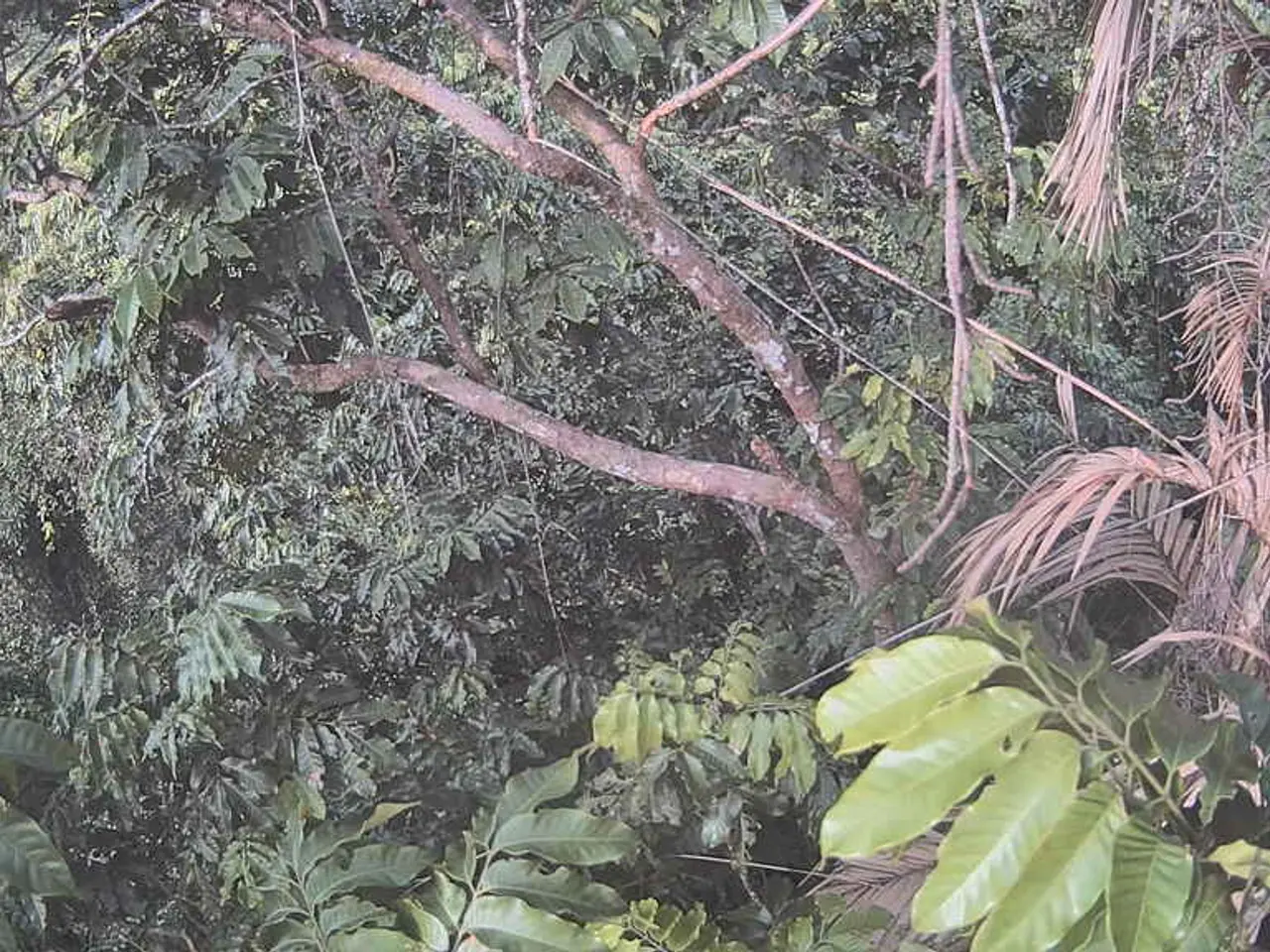Connection between diminishing natural resources and heightened business credit risks highlighted in recent research study
In a significant stride for the financial sector, a first-of-its-kind report has been released by a collaborative effort between DBS, OCBC, UOB, and the University of Cambridge Institute for Sustainability Leadership. The 18-month industry-wide research, supported by the Monetary Authority of Singapore, aims to understand how nature-related risks and dependencies translate into credit risk within the banks' loan portfolios.
The study, conducted over the past year and a half, focused on the food and agriculture sector, a critical economic area for Southeast Asia that heavily relies on natural ecosystems. A nature dependency analysis was carried out across the loan portfolios of DBS, OCBC, and UOB.
Researchers examined the impact of various hypothetical scenarios such as ecosystem degradation, water shortages, prolonged droughts, and elevated temperatures on palm oil production, a major agricultural commodity in the region. The findings identified that upstream players in the supply chain tended to be more sensitive to nature-related risks than integrated players, and that clients with better financial health demonstrated greater resilience to short-term acute risks.
Mike Ng, group chief sustainability officer at OCBC, supports the project's goal of understanding nature-related financial risks. The report aims to help banks build internal capabilities to identify, assess, and measure nature-related dependencies and associated financial impacts within their corporate lending portfolios, recognising the broader economic significance of biodiversity loss and ecosystem degradation.
This study marks a pioneering effort in the financial sector to explicitly link environmental dependencies with credit risk, highlighting the need for further data, research, and collaboration to better quantify and manage these emerging risks. Exploratory, case-based assessments like this one could help expedite progress by translating the GBF into the financial lingo of actionable materiality.
The 18-month project aims to make a business case for nature, potentially serving as a template for other financial institutions. The financial materiality of nature loss is backed by a reasonable consensus, but views on its effect on investment and lending decisions are still forming.
Southeast Asia's economies and communities are heavily dependent on nature and biodiversity, making this study particularly relevant and timely. As the region continues to develop, it is crucial to understand and manage the risks associated with nature loss to ensure a sustainable and resilient future.
[1] Source: https://www.dbs.com/insights/sustainability/nature-related-risks-and-credit-risk-in-southeast-asia.html [2] Source: https://www.ocbc.com/news-and-media/press-releases/ocbc-and-dbs-bank-launch-groundbreaking-report-on-nature-related-risks-and-credit-risk-in-southeast-asia
- This pioneering research in the financial sector, conducted by DBS, OCBC, UOB, and the University of Cambridge Institute for Sustainability Leadership, focuses on the food and agriculture sector in Southeast Asia, and aims to identify nature-related financial risks, particularly those associated with climate change and environmental science, in the banks' loan portfolios.
- The study, which supports the goal of understanding the financial materiality of biodiversity loss and ecosystem degradation, also seeks to establish a business case for nature, leveraging environmental-science data to quantify and manage nature-related dependencies and associated financial impacts within corporate lending portfolios, thereby influencing investment and lending decisions in the realm of business and finance.




